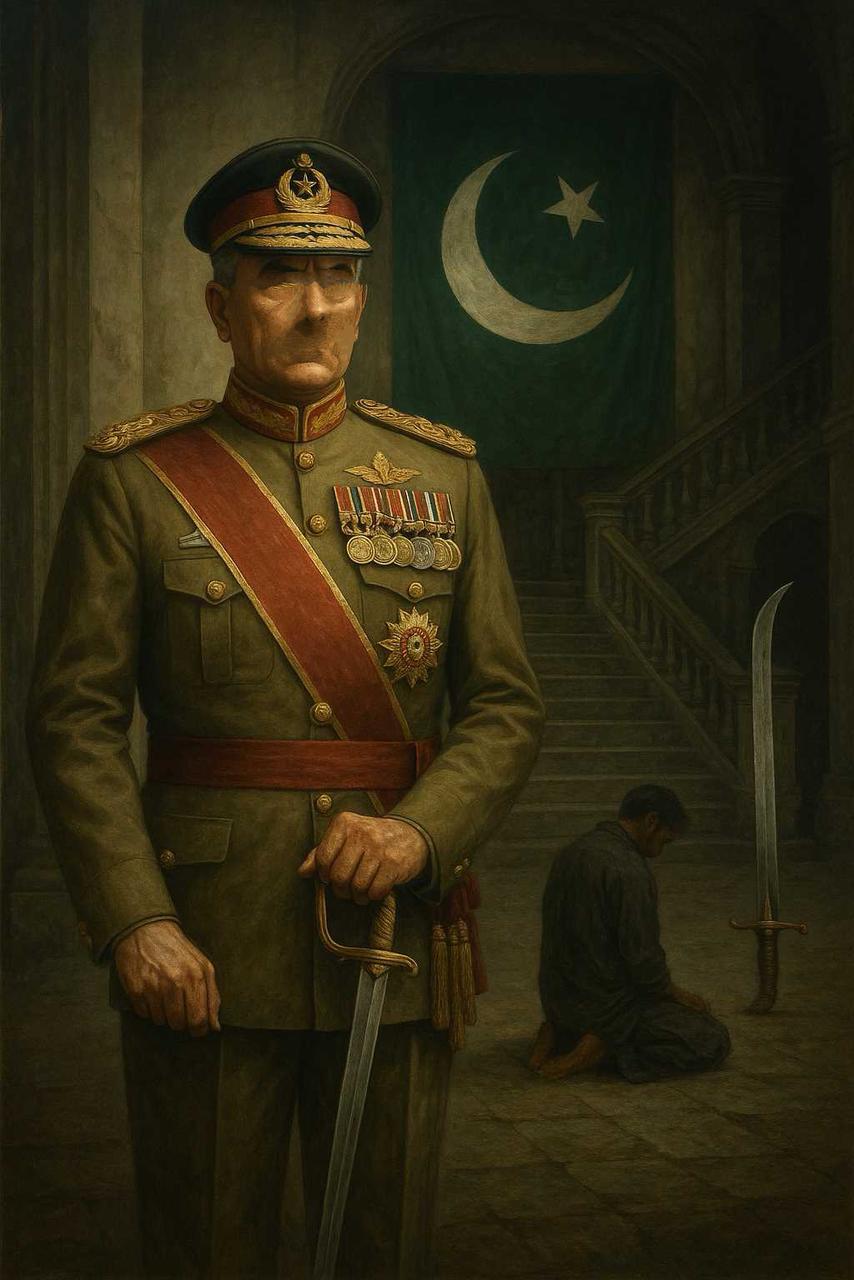Silent mirage stands,
Beneath the blade, truth whispers,
Courage breaks the stage.
In the shadowed corridors of contemporary Pakistan, where the air hums with a peculiar blend of bravado and despair, a new spectacle unfolds. The Chief of Army Staff, now adorned with the self-bestowed title of Field Marshal, strides forth, his chest puffed with the dubious laurel of a victory against India; a triumph so questionable it dissolves under the slightest scrutiny, much like a mirage in the Sindh desert. This is no mere elevation of rank; it is a coronation of illusion, a grand theater staged to mask the crumbling edifice beneath. Vaclav Havel, in his piercing essay “The Power of the Powerless,” would recognize this as the greengrocer’s slogan writ large, less a statement of truth, more a ritualistic chant to appease the unseen overseers and silence the restless masses.
The numbers, those sacred scrolls of economic prophecy, have been tampered with, twisted into a grotesque parody of reality. Gross Domestic Product, that vaunted measure of a nation’s pulse, is proclaimed to have grown by a staggering 2.68% in the fiscal year. Yet, peel back the veneer, and the stench of deceit wafts forth. Large-scale manufacturing and mining, the sinews of industry, have withered down 1.54% and 3.3% respectively, their decline etched in the high-frequency data that no amount of official ink can erase.
Meanwhile, the regime crows of an industrial sector burgeoning by 4.47%, a figure conjured from the ether, unmoored from verifiable evidence. Small-scale manufacturing, electricity, gas, and water supply sectors shrouded in opacity, miraculously surge by 8.8% and 28.8%, respectively. Even slaughtering, that grim trade, swells by 6.34%, as if the nation’s vitality is measured by the bloodletting of its livestock. Anything that cannot be independently verified dances upward; anything tethered to documented reality languishes in decline. This is not economics but alchemy, a desperate transmutation of leaden failure into golden success.
Havel’s greengrocer, placing his slogan in the window to avoid trouble, finds his echo in the Pakistani citizen today. Questioning this charade invites the shadow of the state: arbitrary arrest, detention without recourse, a plunge into the abyss of legal oblivion. The power structure, draped in the garb of legitimacy, thrives on this enforced silence. The Field Marshal’s rise, built on a victory as flimsy as a house of cards, is less a military triumph than a psychological gambit, a ritual to reinforce the lie that all is well. The ideology here is not Marxism or some grand doctrine but a simpler creed: obedience through fear, prosperity through fiction.
The streets of Karachi and Lahore exude the quiet of stagnation. The worker in Faisalabad, with his loom idle, understands the truth that the numbers deny. The farmer in KP, whose yield has diminished, feels the weight of neglect. Yet, to speak is to risk the knock at midnight, the vanished colleague, the family left in dread. The regime’s façade, supported by manipulated statistics and the glorification of a questionable war, demands complicity. It is a system in which living within the truth becomes an act of rebellion, where the greengrocer’s slogan is replaced by the citizen’s coerced nod.
Read More: After Pehalgam Tragedy: Road Ahead for India & Pakistan?
This post-authoritarian mimicry, as Havel might call it, extends beyond economics into the very soul of society. The military’s dominance, now crowned with a Field Marshal’s baton, casts a long shadow, its roots sinking deeper into a history of control. The public, cowed into submission, contributes to the panorama of lies; each silent acquiescence a brick in the wall of the regime’s self-preservation. Yet, Havel offers a glimmer: the power of living within the truth, however small the act, can fracture this edifice. A whisper of dissent, a refusal to applaud the fudged figures, might ripple outward, exposing the emperor’s nakedness.
For now, Pakistan teeters on this precipice: caught between the lie’s comforting embrace and the perilous freedom of truth. The Field Marshal’s throne, built on sand and statistics, may stand until the first brave soul dares to step out of line. Until then, the nation remains a stage, its actors bound by a script of silence, its audience too fearful to boo.
Miyamoto Musashi, a Kensei of markets and power, wields a pen as sharp as his blade.













